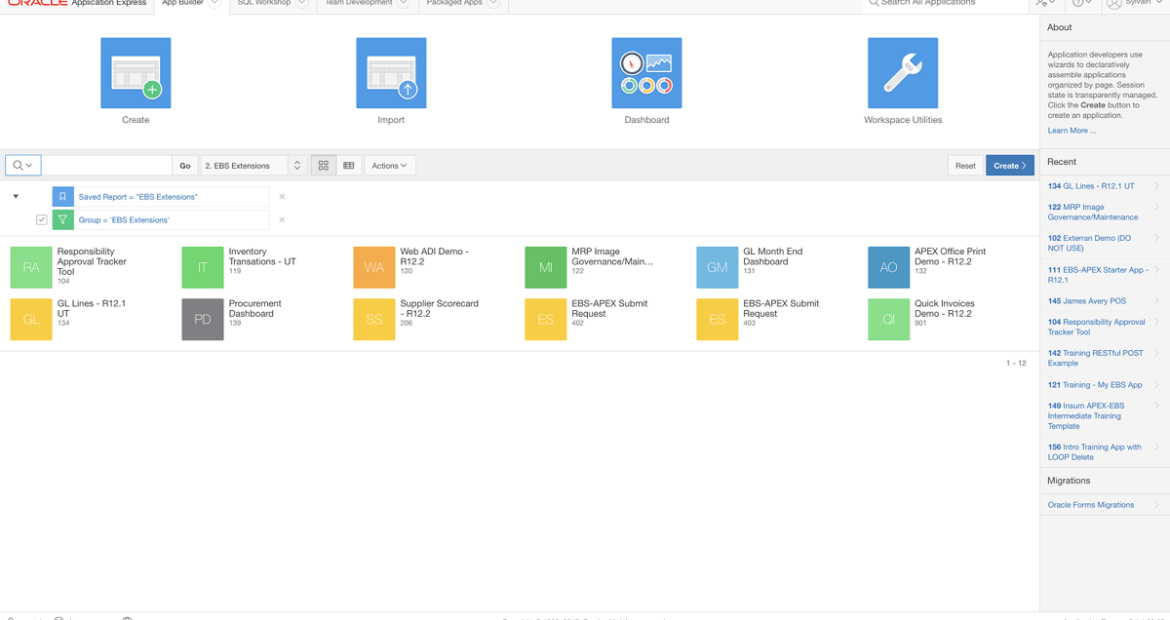In any company, one of IT’s primary responsibilities is to continually increase the profitability of the organization’s information. In that perspective, IT innovation is vital to the company’s future. Innovation is necessary for survival, and sometimes, custom software development is the fastest way to achieve what’s necessary.
ERPs can’t do it all
Back office infrastructure is one of the areas that constantly needs IT innovation. Most large companies have sophisticated Enterprise Resource Planning systems (ERPs). But, it’s unlikely that the needs of such companies are 100% met by their ERP system. Not that I’ve seen at least. There is always tweaking. Given the right tools, custom software development by internal staff, possibly aided by an experienced consulting firm can be a shortcut that avoids expensive overhaul or purchase and licensing of new software.
Not everything needs to be changed, of course. Accounting functions like general ledger don’t really change over time. But things like accounts receivable and accounts payable, frequently need extra development to meet new business needs. Just as an example, at some point in time, a company’s accounts payable typically requires interfaces with banks to do EFT (Electronic Fund Transfers).
This is nothing exceptional, just normal evolution. But it is something that the ERP may not be able to handle, and that custom software development can.
Resistance
But, developmental changes to extend the capabilities of the ERP, inevitably come up against some resistance. Understandably so. Administrators in some companies are signing checks for millions annually just for licensing costs. Whether it’s for SAP, Oracle E-business Suite or others, these administrators are saying, “we’ve paid all this out in licensing fees, why do have to pay more for more development?”
To that, I would answer that as businesses develop they become specialized, more and more unique. These are their strengths, their unique differentiating factors. The internal workings of a business must reflect that, otherwise, how can a business stay competitive? This is an area in which a generic system can’t always give you what you need. Sometimes what needs to be changed seems very simple and logical, yet the system still can’t provide for it.
An Example
One manufacturing company I developed for couldn’t work with the ERP’s Manufacturer’s screens. This particular series of screens didn’t fit the client’s needs. They were too complex for the simple operations required. When one of their products got to the end of the production line, it simply had to be scanned to indicate that its treatment was completed. This would close the work order to prepare for product expedition. This is pretty standard, but the scanning part made it incompatible with the ERP. In this particular case, the System was Oracle E-business Suite (EBS). Originally, they had developed a workaround with an older application development platform called Oracle Forms, but when the time came to upgrade their version of ERP, that Form could not be upgraded.
Custom Application Development With Oracle APEX
I recommended redoing the screen in Oracle APEX, the web-based application development platform that comes with all versions of the Oracle Database. They were pleased with the suggestion because it meant they didn’t have to buy additional software or pay out new licensing. Furthermore, Oracle APEX enables you to very quickly develop a proof of concept. I had a working version ready for them within a week.
APEX was also a good fit for this IT team. They were used to developing in PL/SQL, which APEX is based on, and had some knowledge of JavaScript. Experienced in EBS and Oracle Forms development, they understood the principles behind APEX and eagerly used it to try new things on other projects they had waiting.
It does sometimes happen that companies will brush off APEX as a solution. Once, I even get this surprising objection from a company running an EBS system: “well, we already support several development technologies, and we are not going to support another”. I didn’t laugh, but it took some effort.
Conclusion
APEX is web-based and ideally suited to custom software development needs. You can use it to create extensions or brand-new applications that can help your company achieve their business goals without an extravagant investment in time or capital.
Oracle APEX really is an application development platform that deserves your attention.
Find out more about Oracle APEX – read “Top 5 Questions People Ask About APEX”
Develop in EBS? Read “Top 3 use cases of EBS Extensions With Oracle APEX”
Develop in Oracle Forms? read our series on Oracle Forms Modernization
Want to learn more? Contact Us!
